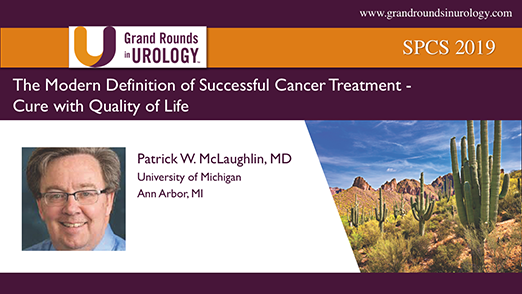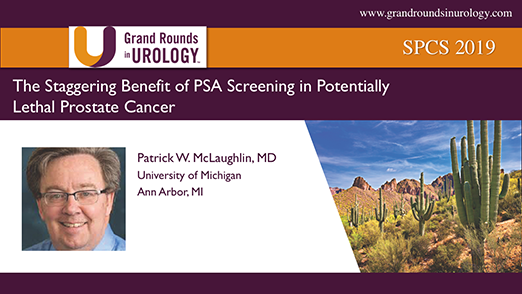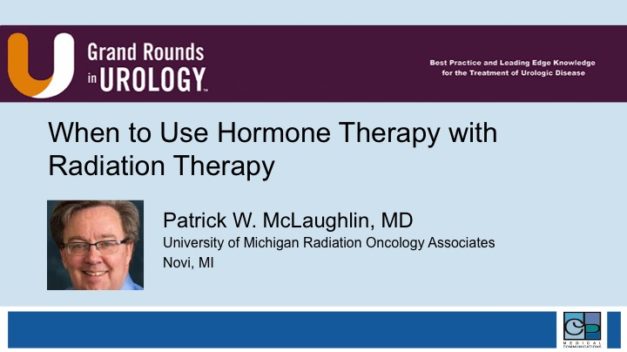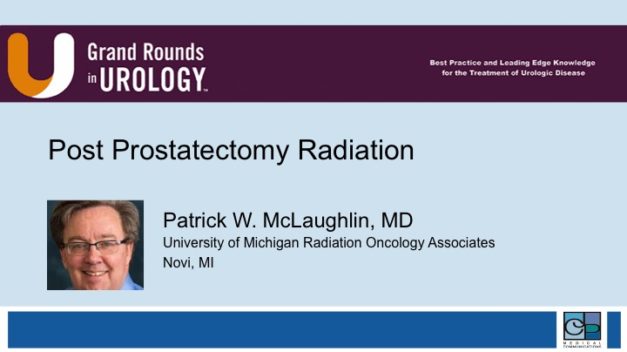Hormone Therapy in High Risk Prostate Cancer
Patrick W. McLaughlin, MD, discusses balancing the therapeutic effects of androgen deprivation therapy (ADT) with the impact of quality of life (QOL). He examines the best timing and radiotherapy regimen combination to pair with ADT, as well as properly assessing individual patients’ risk factors and disease severity when choosing treatment options.
Read More




